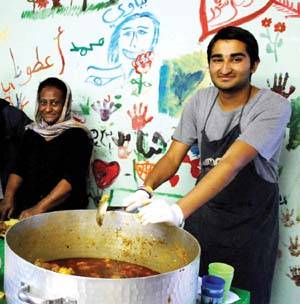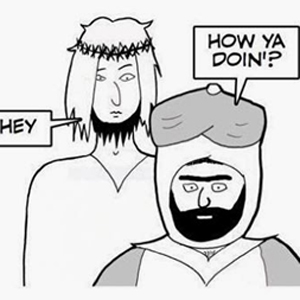In 2006, Raif Badawi started a website in his home country of Saudi Arabia. The website, Free Saudi Liberals, was a platform for serious discussion of liberal ideas, religious authorities, and the kingdom’s Wahhabi Islam. It included articles critical of senior religious figures, including Saudi Arabia’s top clerics.
In June 2012, he was arrested and given a seven year sentence and 600 lashes, on charges including “setting up a website that undermines general security” and “ridiculing Islamic religious figures”. The prosecution wanted him to be charged with apostasy – which carries the death sentence – but this was dismissed by the judge. At the time, spokesman for Amnesty International said: "Even in Saudi Arabia where state repression is rife, it is beyond the pale to seek the death penalty for an activist whose only 'crime' was to enable social debate online".
After the initial sentencing, an appeals court ordered a retrial. This week, his sentence was upgraded to 10 years imprisonment and 1,000 lashes. He will also be fined 1m riyals (£160,000). After Badawi was arrested in 2012, Amnesty said that he was a prisoner of conscience, “detained solely for peacefully exercising his right to freedom of expression”.
The harsh sentencing of Badawi is shocking, but not surprising, given the context of Saudi Arabia’s intolerance of dissent. The think-tank Freedom House has characterised the media environment as one of the “most repressive in the world”. Just last month, human rights blogger Fadhel al-Manafes was sentenced to 15 years in jail followed by a 15 year travel ban, on charges including “undermining national security and stability”, “disloyalty towards the king”, and “publishing articles and communicating with foreign journalists with the aim of harming the state’s image”. In 2012, 23 year old Saudi journalist and blogger Hamza Kashgari was extradited from Malaysia over tweets that allegedly insulted the Prophet Muhammed. He faced the death sentence (like Badawi, because of an apostasy charge), and in the end was jailed for two years. Also in 2012, several websites sympathetic to Shi’ite Muslims were shut down and their proprietors arrested.
State suppression of dissent is nothing new in Saudi Arabia. What these cases do have in common, though, is that the “crimes” were purely online. As in any state where the mainstream media is tightly controlled, many Saudis have looked to the internet for ways to express their political views. That trend is something that the Saudi government has moved to halt, particularly in the aftermath of the 2011 Arab Spring revolutions. The Saudi regime, anxious about contagion from the unrest, has since stepped up its cracked down on dissenters who – like Badawi – had previously been just about tolerated (he first had a run in with the police in 2008, but the website was not shut down until his 2012 arrest). According to Freedom House, the government can easily monitor and block websites, because all web traffic is routed through a proxy located in the state-run King Abdulaziz City for Science and Technology.
The aim of excessively harsh sentences, like those handed out to al-Manafes and Badawi, is obvious. As Reporters Without Borders has pointed out, the “systematic recourse to prison terms and the harshness of the sentences imposed” encourages self-censorship. When one journalist or blogger is jailed, many more are silenced. There seems to be very little hope for those seeking to foster political dialogue in the kingdom.

